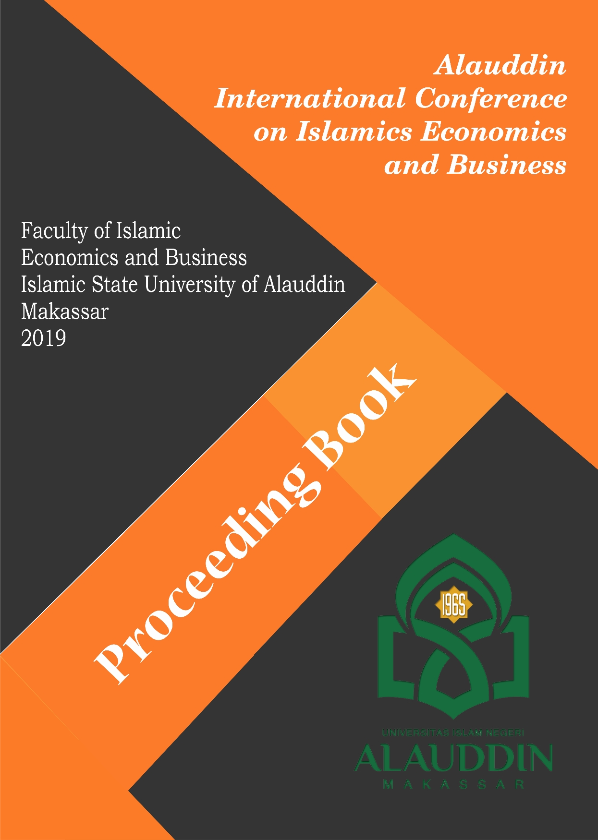THE IMPACT OF ILLUSION OF CONTROL, OVERCONVIDENCE AND EMOTIONS ON INVESTMENT DECISIONS MADE BY YOUNG INVESTORS IN THE CITY OF MAKASSAR
Abstract
Young investors are unique in terms of making investment decisions. This study aims to examine the impact of illusion of control, overconvidence and emotion on investment decisions made by young investors in the city of Makassar. Using quantitative method, 114 investors are available as participants to answer the questionnaire of this research. The sampling technique used is accidental sampling. The results of the study show that Illusion of Control partially has a positive and significant impact on investment decisions. Overconvidence partially has a positive and significant impact on investment decisions. Emotions partially have a positive and significant impact also on investment decisions. Simultaneously illusion of control, overconvidence and emotion have a positive and significant effect on investment decisions. The findings of this study show that young investors in the city of Makassar involve psychological bias in making investment decisions.
Downloads
References
Agustin, Pramita, 2014. Behavior of Muslim Investors in Trading Shares in the Capital Market. JESTT . 1 (12): 874-892.
Durand, Robert, Rick Newby, Kevin Tant, Sirimon Trepongkaruna, 2013. Overconfidence, overreaction and personality. Review of Behavioral Finance, Vol. 5 (2): 104-133
Duxbury, Derren, 2015. Behavioral finance: insights from experiments I: theory and financial markets . Review of Behavioral Finance , Vol. 7 (1): 78 - 96
Ghozali, Imam , 2013 . Multivariate Analysis Application with IBM SPSS 21 program . Semarang. Diponegoro University Publishing Agency
Hsu , Ai- Chi and Hsu-Sheng Chen, 2017. Effect of Manager's Illusion of Control and Corporate Governance Structure on The Sensitivity of Investment Cash Flow. International Journal of economics andFinancial. 7 ( 3): 31-35.
Joseph, Chricela Natalia, 2015. Illusion of Control and Demigraphy Factors in Investment Decision Making. Economic Journal . 9 (2): 108-117
Kansal, Priya and Seema Sigh, 2018. Determinants of Bias Overconfidence in Indian Stock Market. Qualitative Research in Financial Markets : 2-5
Kartini and Nuris F Nugraha, 2016. Effects of Illusion of Control and Emotion on investment decision making in Investors in Yogyakarta. Journal of Innovation and Entrepreneurship. 4 (2): 115-112
KSEI. 2018. KSEI's Strategic Plan, 2018 : Make it happen Financial and Information Hub 2020.1-12 (www.ksei.co.id)
Lestari, Winda and Wahyu Kuantarti, 2014. Investor Behavior in the Capital Market in Lampung. ESAI Scientific Journal. 8 (1). 1-14
Nofsinger, Jhon R, 2005. Social Mood and Financial Economics. The Journal of Behavioral Finance . 6 (3): 144–160
Pradikasari, Ellen and Yuyun Isbanah, 2018. Effects of Literacy Financial, illusion of control, over-evidence, risk tolerance, and risk perception on investment decisions in Students in Makassar City. Journal of Management Sciences. 6 (4) : 424-434.
Riaz, Tabassum and Haroon Iqbal, 2015. Impact of Over-evidence, illusion of control, self-control and optimism bias on Invoice decision making: Evidence from developing Markets. Research Journal of Finance and Accounting. 6 ( 11): 110-115
Sarimatua, Yohannes R and Achmad Husaini , 2017 . The Role of Psychological Factor on Financial Decision Making (Case Study at Kalrez Petroleum (Seram) Ltd). Journal of Business Administration (JAB). 51 (1): 105-114.
Umaya, Faraz. 2014. Regret's Emotions and Decision Making in the Economy. Psychology Bulletin . 22 ( 2): 117-125.
Wulandarai, Ayu D and Rr. Iramani, 2014. Experienced Regret Study, Risk Tolerence, Over-evidence and Risk Perception on Investment Decision Making in Economic Lecturers. journal of Business and Banking. 4 (1): 55-66.

